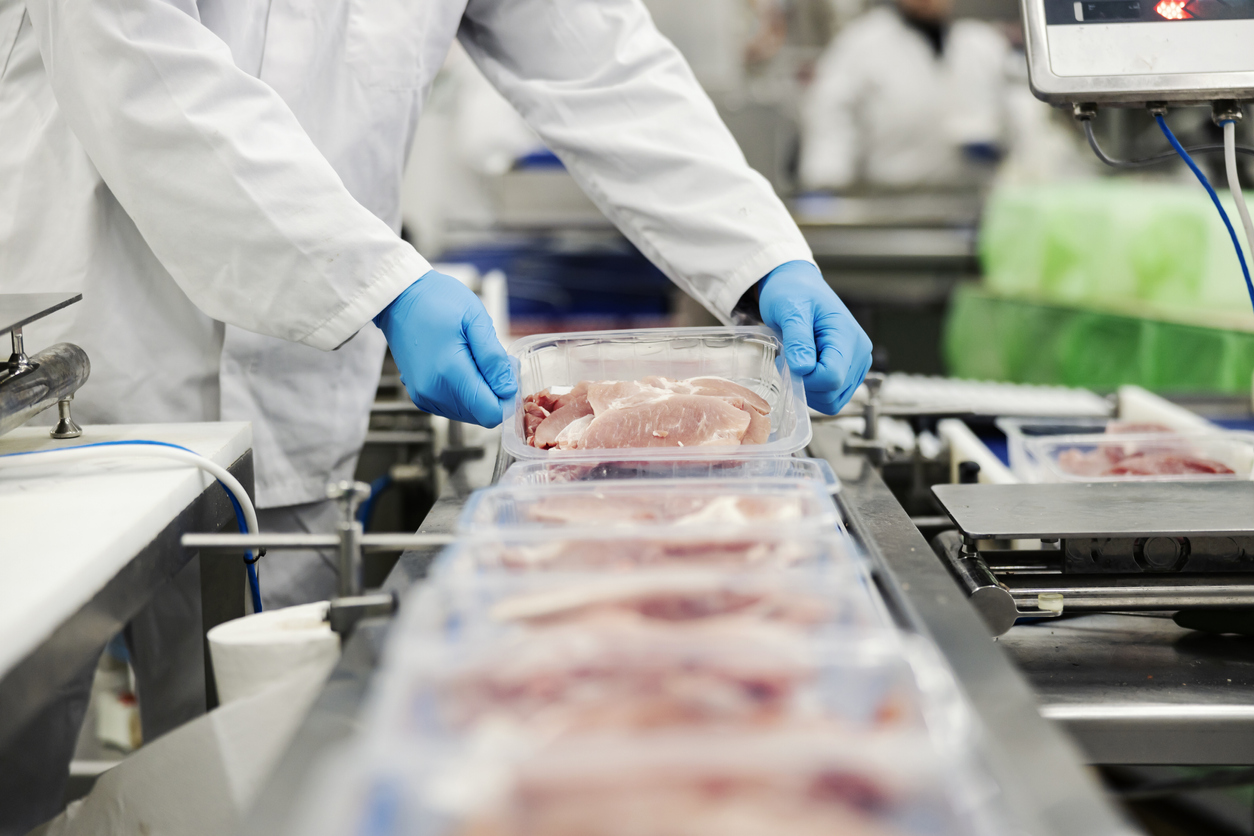A Closer Look at Poultry Meat Processing in Nigeria: Insights from Wigmore Trading
A Closer Look at Poultry Meat Processing in Nigeria: Insights from Wigmore Trading
Are you curious about how poultry meat is processed in Nigeria? Look no further! In this blog post, we take a closer look at the fascinating world of poultry meat processing with insights from Wigmore Trading. From farm to table, learn all about the journey of your favorite chicken dishes and discover the secrets behind high-quality poultry products. Get ready to be amazed by the intricate processes that go into bringing delicious poultry meat to your plate!
Introduction to Wigmore Trading and their role in the poultry meat industry in Nigeria
Introduction to Wigmore Trading and their role in the poultry meat industry in Nigeria
Wigmore Trading is a leading player in the Nigerian poultry meat industry, providing high-quality products and services to its customers since 2004. Over the years, they have established themselves as a trusted brand in the market, known for their commitment to excellence and customer satisfaction.
The company’s main focus is on the processing, distribution, and marketing of poultry meat products such as chicken, turkey, and eggs. They work closely with local farmers and suppliers to ensure that only top-grade poultry is used in their production process. This not only ensures the quality of their products but also supports local agriculture and contributes to the development of rural communities.
One of Wigmore Trading’s key strengths lies in their state-of-the-art processing facilities. Equipped with modern technology and adhering to strict food safety standards, they are able to produce hygienic and nutritious poultry meat products that meet international standards. This has enabled them to gain an edge over competitors in terms of product quality and consistency.
Apart from processing, Wigmore Trading also has a well-established distribution network across Nigeria. With warehouses strategically located throughout the country, they are able to efficiently supply their products to various regions. This allows them to reach a wider market while ensuring timely delivery of fresh products.
In addition to this, Wigmore Trading also offers value-added services such as packaging solutions tailored for different markets and customer preferences. They understand that packaging plays a crucial role in attracting consumers’ attention and have invested heavily in this aspect of their business.
But beyond just being a successful business entity, Wigmore Trading also strives towards social responsibility by promoting sustainable practices within the poultry industry. They actively participate in initiatives that aim at reducing waste generation during production processes and minimizing environmental impact through proper disposal methods.
Wigmore Trading’s role goes beyond just being a supplier or distributor; they act as pioneers driving the growth and development of the poultry meat industry in Nigeria. Through their commitment to quality, innovation, and sustainability, they have set a benchmark for other players in the market to follow. In the following sections, we will take a closer look at their processes and practices that have contributed to their success in the Nigerian poultry meat industry.
History and background of poultry meat processing in Nigeria
The history of poultry meat processing in Nigeria dates back to the colonial era, when the British introduced commercial poultry farming and processing techniques to the country. However, it was not until the 1960s that poultry production and processing began to gain significant traction in Nigeria.
During this time, a number of large-scale poultry farms were established in the southwestern part of the country. These farms were primarily focused on producing eggs for consumption and export, but also processed chicken meat for local markets. The rise of these farms led to increased demand for chicken meat, which prompted small-scale farmers to start their own backyard poultry operations.
In the 1970s and 1980s, there was a major shift in the Nigerian poultry industry as more people began to consume chicken meat as a source of protein. This growth was largely driven by an increase in urbanization and a rising middle class who had more disposable income for purchasing meat products.
However, during this period there were also challenges facing the industry such as inadequate infrastructure, poor feed quality, disease outbreaks and lack of government support. As a result, many small-scale producers struggled to compete with larger commercial farms.
In order to address these challenges and promote sustainable growth within the industry, various government initiatives were implemented including subsidies for day-old chicks and access to credit facilities for small-scale farmers.
By the late 1990s and early 2000s, advancements in technology played a crucial role in modernizing Nigeria’s poultry sector. New equipment like automated feeders and water systems made production more efficient while improved breeding techniques led to higher quality birds that could be processed at younger ages.
Today, Nigeria is one of Africa’s largest producers of chicken meat with over 1 million tons produced annually according to data from FAOSTAT (Food And Agriculture Organization Corporate Statistical Database). Poultry processing has become an important part of the country’s economy providing employment opportunities along with contributing significantly to its GDP.
While the history of poultry meat processing in Nigeria has faced its fair share of challenges, advancements in technology and government support have helped shape it into a thriving industry. With an increasing demand for chicken meat, the prospects for growth within this sector are promising.
Current state and growth of the industry in Nigeria
The poultry industry in Nigeria has experienced significant growth over the past few decades, making it one of the most dynamic and important sectors in the country’s economy. According to recent statistics from the Nigerian Poultry Association, the industry contributes approximately 25% to the agricultural gross domestic product (GDP) and employs about 20 million people.
One of the major reasons for this growth is the increasing demand for poultry meat and eggs in Nigeria. With a population of over 200 million people, there is a high demand for affordable sources of protein, making poultry products a staple in many households. Furthermore, advancements in technology have made it easier for small-scale farmers to enter the market and meet this growing demand.
The current state of poultry processing plants in Nigeria is relatively advanced compared to other African countries. The sector has seen significant investments from both local and international companies, with modern processing facilities and equipment being introduced into the market. This has led to an increase in production efficiency, higher quality products, and improved food safety standards.
However, despite its growth and potential, there are still some challenges facing the poultry industry in Nigeria. One major issue is disease outbreaks that can result in huge financial losses for farmers. Avian influenza or bird flu has been a recurring problem in some parts of Nigeria, leading to mass culling of birds and disruption of supply chains.
Another challenge is inadequate infrastructure such as roads and electricity supply which can hinder transportation of live birds or processed products to different parts of the country. This often leads to higher production costs and lower margins for producers.
Despite these challenges, there are still opportunities for further growth within the Nigerian poultry industry. The government has introduced policies such as import restrictions on frozen chicken products to promote local production and boost domestic consumption. This presents an opportunity for local farmers and processors to expand their operations and meet this increased demand.
In addition, there is also a growing trend towards organic poultry farming methods among consumers, which presents an opportunity for farmers to tap into the niche market and cater to this growing demand. This can also lead to higher profits as organic products often command a premium price.
While there are challenges facing the poultry industry in Nigeria, its current state and growth potential make it a promising sector for both local and international investors. With government support and advancements in technology, the industry is expected to continue its upward trajectory, contributing significantly to the country’s economic growth.
Challenges faced by the poultry meat industry in Nigeria
The poultry meat industry in Nigeria is a vital sector of the country’s economy, providing employment opportunities and contributing significantly to the nation’s food production. However, like any other industry, it faces several challenges that hinder its growth and development. In this section, we will discuss some of the major challenges faced by the poultry meat industry in Nigeria.
1. High Cost of Production:
One of the biggest challenges faced by poultry farmers in Nigeria is the high cost of production. This includes costs for feed, medicines, vaccines, labor, and electricity. The fluctuation in prices of these inputs can significantly affect profit margins and make it difficult for small-scale farmers to compete with larger commercial farms.
2. Poor Infrastructure:
Another significant challenge facing the poultry meat industry in Nigeria is poor infrastructure. Most farms are located in rural areas where there is limited access to facilities such as good roads, electricity supply, and water supply systems. This makes transportation of products and delivery of essential inputs challenging and expensive.
3. Disease Outbreaks:
Disease outbreaks are a common occurrence in the Nigerian poultry industry due to poor biosecurity measures and inadequate veterinary services. These outbreaks not only result in significant economic losses for farmers but also lead to a decrease in consumer confidence due to concerns about food safety.
4. Lack of Government Support:
Despite being a vital sector of the economy, the Nigerian government has not provided enough support for the poultry meat industry. There are no specific policies or programs tailored towards addressing the challenges faced by poultry farmers. This lack of support hinders growth and investment opportunities in this sector.
5. Inadequate Processing Facilities:
The insufficient number of processing facilities is another critical challenge faced by the poultry meat industry in Nigeria. Most small-scale farmers rely on traditional slaughter methods which do not meet international standards for hygiene and food safety regulations.
6 . Low Quality Feed:
Feed constitutes a significant portion (about 60-70%) of production costs in the poultry meat industry. However, there is a lack of quality feed ingredients and formulation expertise in Nigeria, resulting in substandard feed that affects the growth and productivity of birds.
The poultry meat industry in Nigeria faces numerous challenges that hinder its growth and development. These challenges range from high production costs to poor infrastructure and inadequate government support. Addressing these challenges will require collaboration between farmers, government, and other stakeholders to create sustainable solutions for this vital sector of the Nigerian economy.
Importance of proper processing techniques for safety and quality of poultry meat products
Poultry meat processing plays a crucial role in ensuring the safety and quality of poultry products, which directly impacts the health and well-being of consumers. Proper processing techniques are essential to prevent foodborne illnesses and maintain the nutritional value of poultry meat products.
One of the major concerns in poultry meat processing is contamination by harmful bacteria such as Salmonella, Campylobacter, and Escherichia coli (E. coli). These bacteria can be found in raw poultry meat and can cause serious illnesses if ingested by humans. Therefore, it is vital to implement proper processing techniques to eliminate or reduce bacterial contamination.
The first step in ensuring safety during poultry meat processing is maintaining strict hygiene practices. This includes thorough handwashing before handling any product, using clean equipment and utensils, and regular sanitation of work surfaces. Cross-contamination between raw and cooked products must also be prevented by separating them during storage and preparation.
Another critical aspect of proper processing techniques is temperature control. Poultry should be kept at a safe temperature range (between 40°F-140°F) to prevent harmful bacteria from thriving. This means that frozen poultry should be thawed properly before cooking, preferably in the refrigerator overnight rather than at room temperature.
Cooking poultry thoroughly is also crucial for food safety. The internal temperature should reach at least 165°F to kill any harmful bacteria present. Using a thermometer is recommended to ensure accurate cooking temperatures are achieved.
In addition to safety considerations, proper processing techniques also play a significant role in maintaining the quality of poultry meat products. For instance, over-processing or under-processing can result in changes in texture and flavor of the product.
To avoid this issue, it is important to follow recommended guidelines for cutting, deboning, packaging, and storing poultry meat products. Cutting methods should be precise to ensure uniformity in size and shape of pieces while deboning should be done carefully to avoid damaging the flesh or exposing it to foreign materials.
Proper packaging and storage are also essential to maintain the quality of poultry meat products. Vacuum-sealed packaging is ideal for preventing contamination and prolonging shelf life. Storing poultry at the recommended temperature (between 32°F-40°F) can prevent spoilage and maintain freshness.
Proper processing techniques are crucial in ensuring the safety and quality of poultry meat products. Strict adherence to hygiene practices, temperature control, thorough cooking, and proper cutting, deboning, packaging, and storage methods are all vital in producing safe and high-quality poultry meat products.
Insights from Wigmore Trading on their processing techniques and standards
Wigmore Trading is a leading poultry meat processing company in Nigeria, with a reputation for providing high-quality products to their customers. The company prides itself on its efficient and effective processing techniques, which have been developed over years of experience and continuous improvement.
One of the key factors that sets Wigmore Trading apart from other poultry meat processors in Nigeria is their strict adherence to quality standards. Their production facilities are equipped with modern technology and machinery, ensuring that every step of the processing journey meets the highest standards. All equipment is regularly maintained and sanitized to prevent any contamination, and employees undergo thorough training to ensure they follow proper hygiene protocols.
The first step in Wigmore Trading’s processing technique is sourcing only the best quality chickens from trusted suppliers. These chickens are raised in clean and healthy environments, without any use of hormones or antibiotics. This ensures that the end product is not only safe for consumption but also free from any harmful additives.
Once the chickens arrive at Wigmore Trading’s processing facility, they undergo a rigorous inspection process before being approved for further processing. Any birds that do not meet the company’s strict quality standards are immediately rejected.
Next, the chickens are processed using state-of-the-art equipment designed specifically for poultry meat processing. This includes automated plucking machines, evisceration lines, and chilling tanks to maintain optimal temperatures during each stage of production.
To ensure freshness and extend shelf life, Wigmore Trading utilizes advanced packaging techniques such as vacuum sealing and modified atmosphere packaging (MAP). This prevents oxygen exposure which can lead to bacterial growth and spoilage.
In addition to their top-notch production techniques, Wigmore Trading also maintains high food safety standards throughout their entire operation. The facility follows strict guidelines set by regulatory bodies such as NAFDAC (National Agency for Food & Drug Administration & Control) to ensure that all products leaving their facility are safe for consumption.
At every stage of production, Wigmore Trading conducts regular quality checks to ensure that their products meet the highest standards. This includes testing for pathogens and other contaminants, as well as monitoring the overall quality and appearance of the poultry meat.
Wigmore Trading’s processing techniques and standards are a result of their commitment to providing consumers with safe, high-quality poultry meat. Their dedication to continuous improvement and adherence to strict regulations make them a trusted choice for customers looking for premium poultry products in Nigeria.
Advances in technology used in poultry meat processing
Poultry meat processing has undergone significant advancements in technology over the years, particularly in Nigeria. These advancements have revolutionized the way poultry is processed and have greatly improved the efficiency, productivity, and safety of the process.
One of the most notable advances in technology used in poultry meat processing is automation. With automated systems, tasks that were previously done manually can now be completed at a much faster rate with greater precision. This has not only increased productivity but also reduced labor costs for poultry processors.
The use of advanced machinery such as de-feathering machines, evisceration machines, and packaging equipment has also greatly improved the processing of poultry meat. These machines are designed to handle large volumes of birds efficiently while maintaining high standards of hygiene. They are equipped with sensors that detect any abnormalities or contamination, ensuring that only quality products make it through to the end of the production line.
In addition to automation and machinery, technological advancements in food safety have also played a crucial role in improving poultry meat processing. For instance, technologies such as ultraviolet light treatment and ozone sterilization are used to kill harmful bacteria on carcasses before they enter the production line. This ensures that consumers are protected from foodborne illnesses caused by contaminated poultry products.
Another significant advance in technology is traceability systems that enable producers to track every stage of their product’s journey from farm to table. This allows for better quality control and helps identify any potential issues or hazards along the supply chain.
Advances in refrigeration technology have also transformed poultry meat processing by extending its shelf life without compromising its quality. The use of temperature-controlled facilities during storage and transportation ensures that products remain fresh until they reach consumers’ hands.
Furthermore, computerized inventory management systems have made it easier for wholesalers and retailers to manage their stocks effectively by providing real-time data on product availability and expiry dates.
Moreover, there has been an increase in consumer demand for healthier and more sustainable options when it comes to food products. In response, the poultry industry has embraced new technologies such as air chilling, which involves using cold air to cool down carcasses instead of traditional water immersion methods. This not only reduces water consumption but also eliminates the risk of cross-contamination.
Advances in technology used in poultry meat processing have had a significant impact on the industry in Nigeria. From improving efficiency and productivity to ensuring food safety and meeting consumer demands for healthier and sustainable options, these advancements continue to shape the future of poultry processing in the country.
Impact of the industry on local economy and job market
The poultry meat processing industry has had a significant impact on the local economy and job market in Nigeria. This sector, which involves the processing of chicken, turkey, and other poultry products, has seen tremendous growth over the years and has become a major contributor to the country’s economy.
One of the main ways that this industry has impacted the local economy is through its contribution to the country’s gross domestic product (GDP). According to a report by the Nigerian Bureau of Statistics, poultry farming and processing contributed about 25% to Nigeria’s agricultural GDP in 2020. This shows just how crucial this industry is to the overall economic development of Nigeria.
Furthermore, the poultry meat processing industry has created numerous job opportunities for Nigerians. From farm workers to processors, packagers, marketers, and distributors, this sector employs a large number of individuals across different levels. A study by Wigmore Trading revealed that there are an estimated 5 million people employed in various aspects of poultry farming and processing across Nigeria. This not only reduces unemployment rates but also helps improve living standards for many families.
In addition to providing employment opportunities directly within the industry, it also stimulates job creation in related sectors such as transportation, packaging materials production, veterinary services, feed production among others. As such, it acts as an economic catalyst that drives growth in multiple industries and contributes significantly to poverty reduction efforts.
Moreover,the presence of well-established companies like Wigmore Trading who specialize in supplying high-quality equipment and machinery for poultry processing helps boost local businesses by stimulating demand for locally produced goods such as animal feed or packaging materials. This leads to more investments being made into these industries which ultimately contributes positively towards growing local economies.
On another note,influenced by shifts in food consumption patterns driven by urbanization and changing lifestyles,demand for processed poultry products continues soaring especially amongst middle-class citizens.Consequently,this translates into higher returns on investment which attracts more investors thereby creating more job opportunities in this fast-growing sector.
The poultry meat processing industry has had a significant impact on the Nigerian economy and job market. Its contribution to GDP, employment generation, stimulation of other industries, and even changes in food habits are just some of the ways this industry is shaping the local economy. With continued support and investment, this sector holds great potential for further growth and development in Nigeria.








Comments are closed.